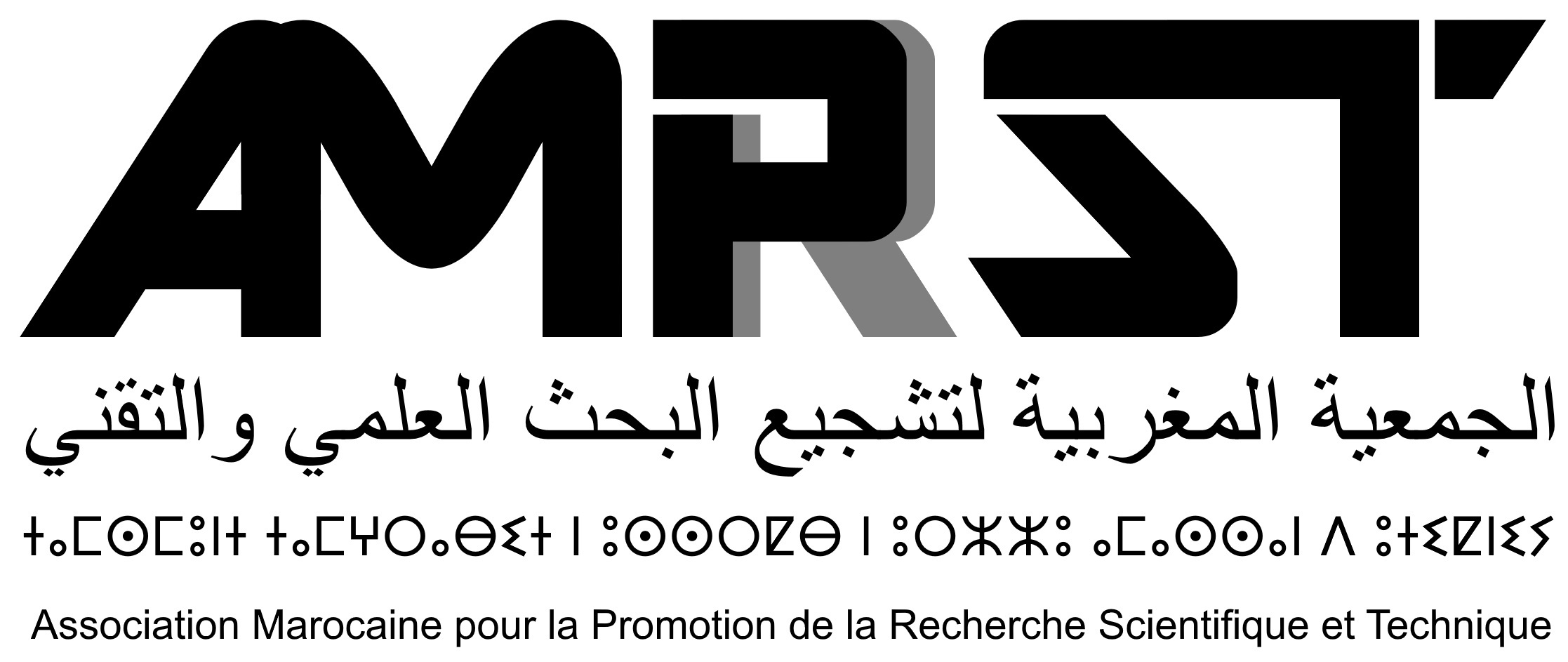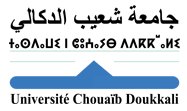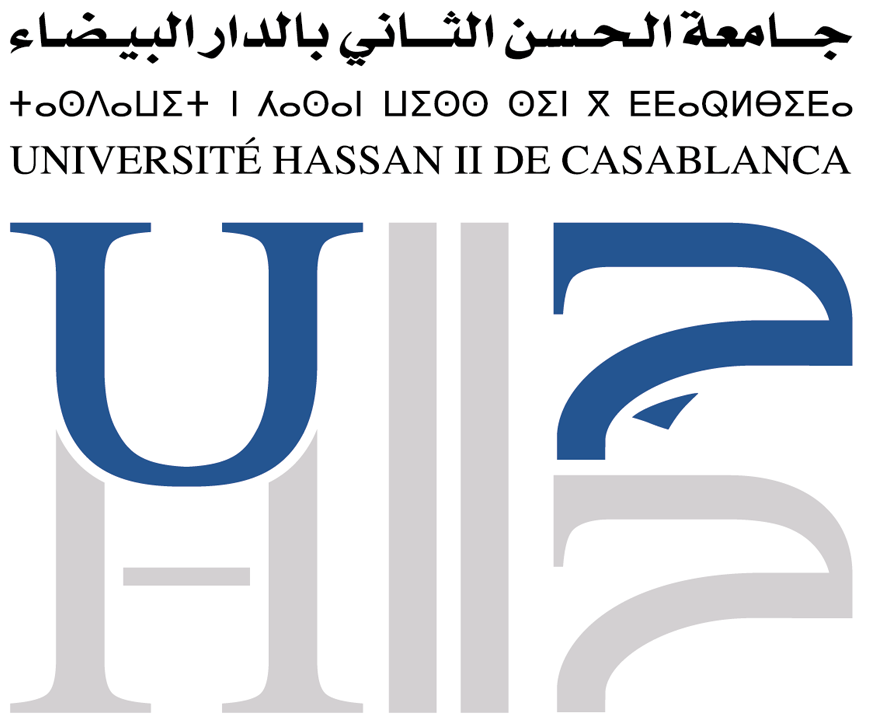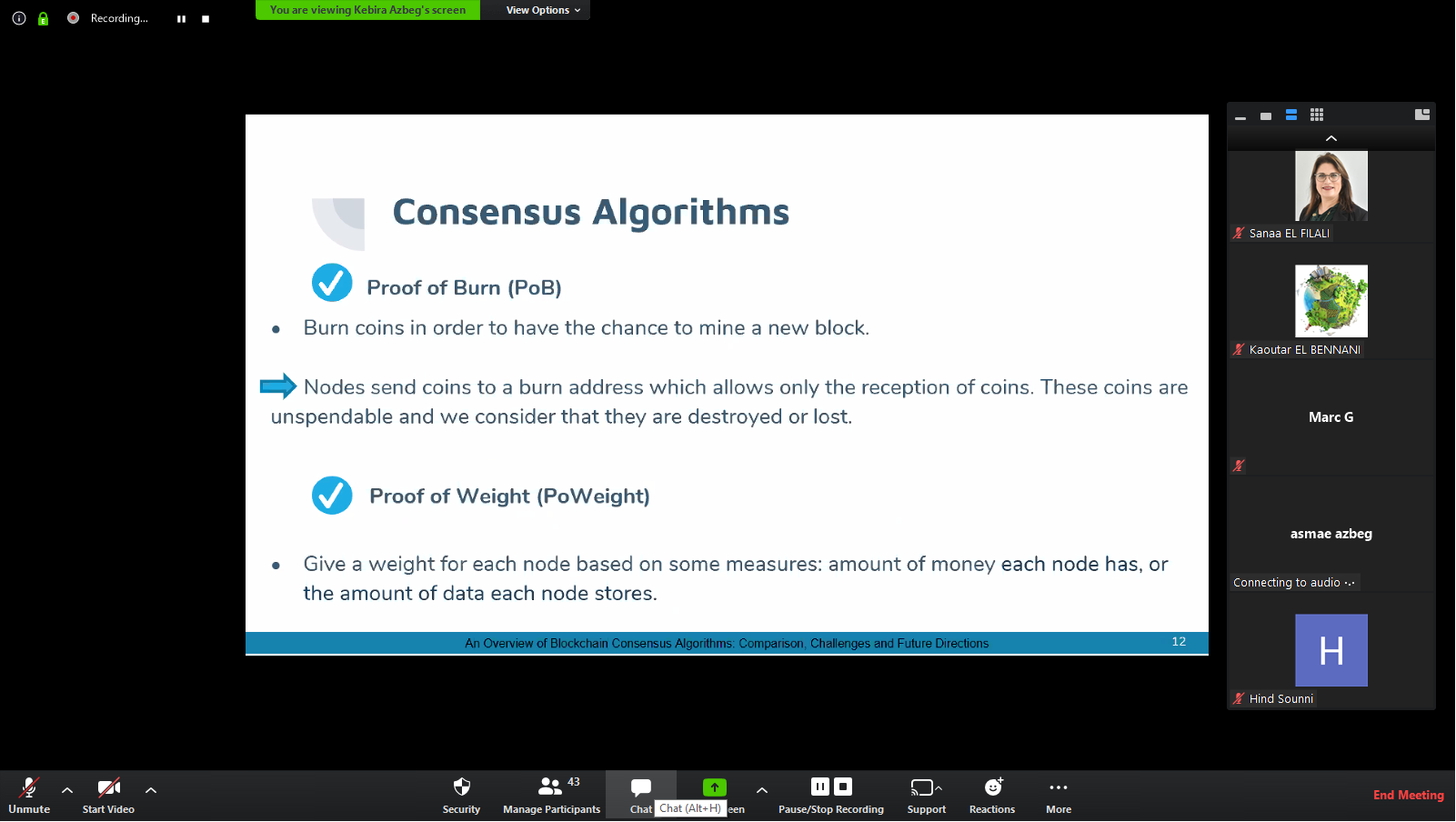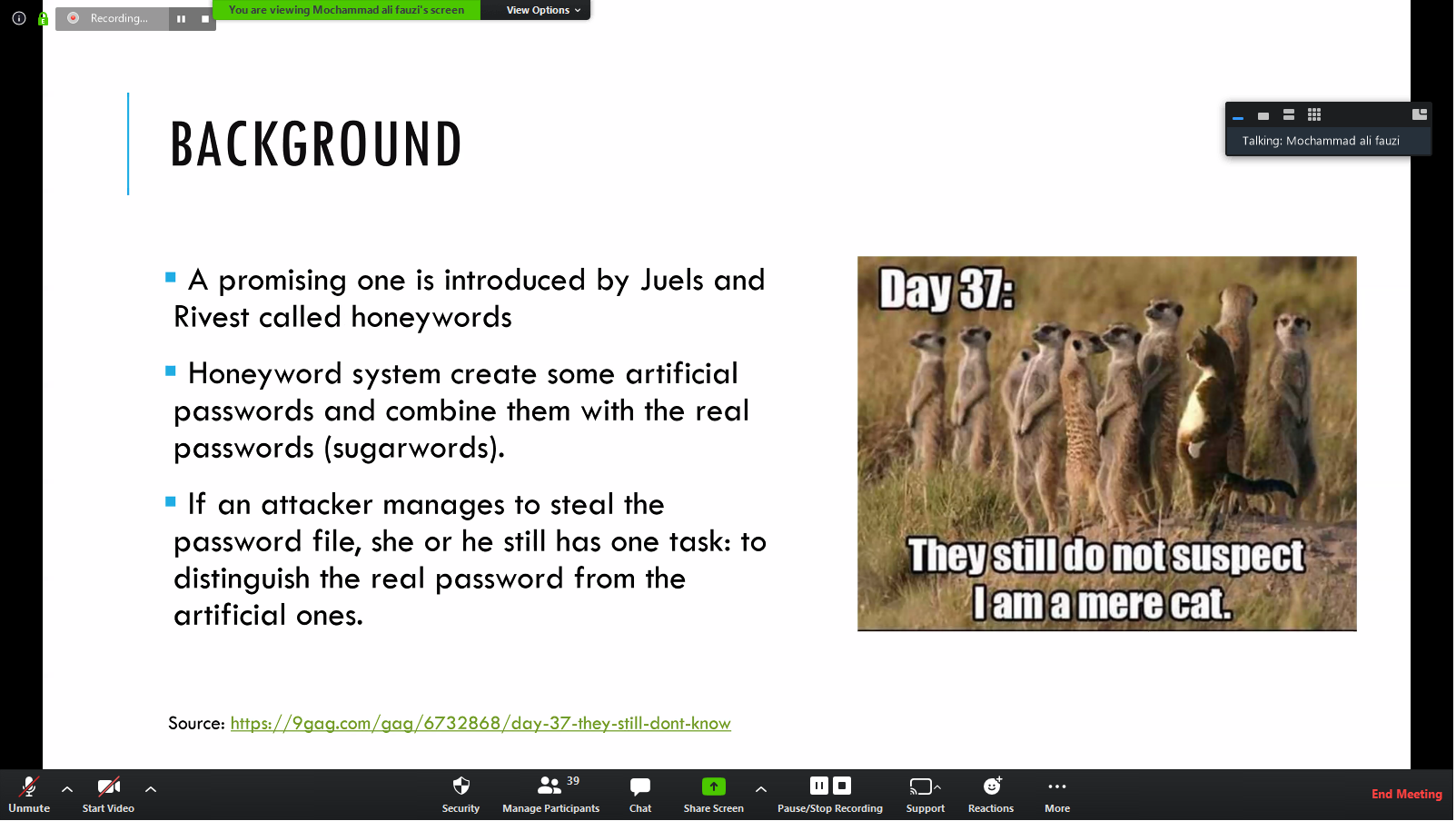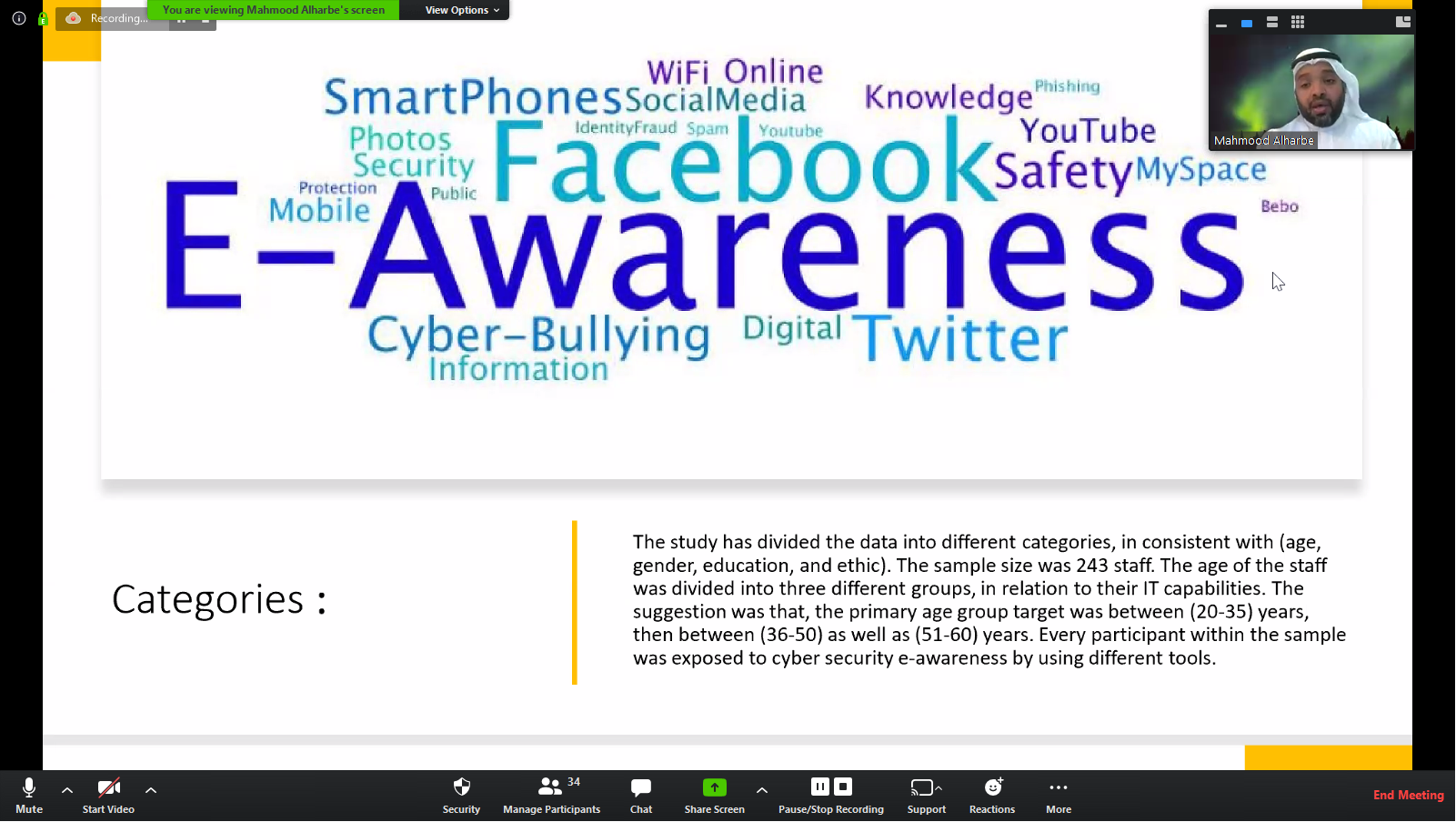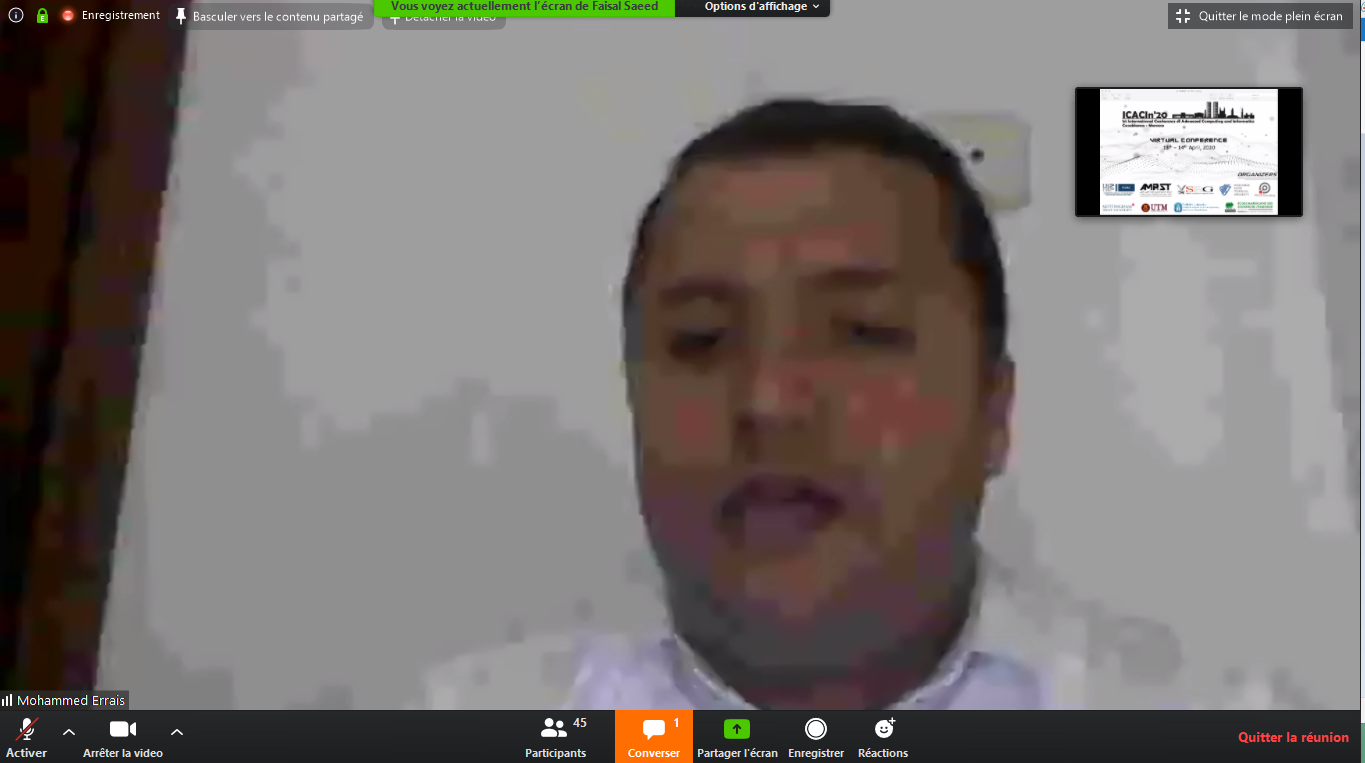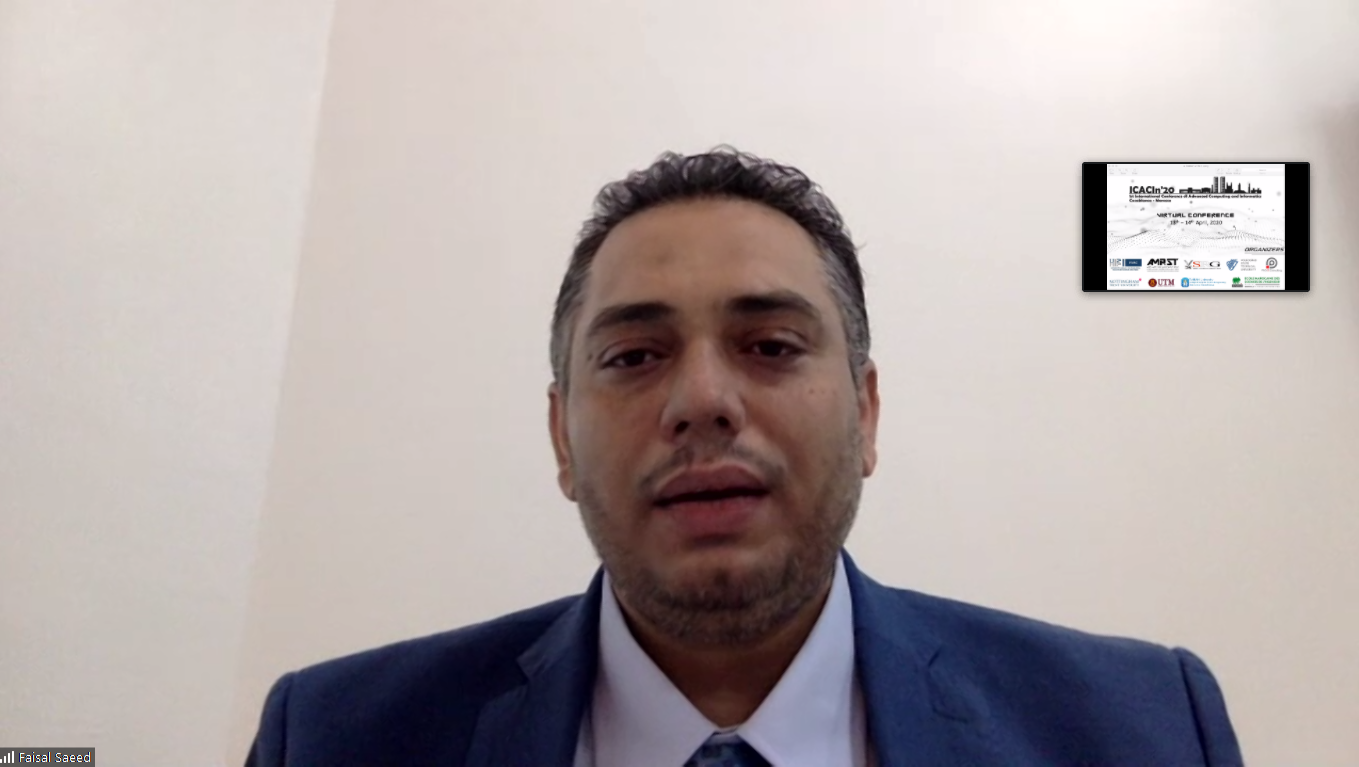Call For Papers
Indexing: The books of this series are submitted to ISI Proceedings, Springerlink, EI-Compendex, DBLP, and Google Scholar


All contributions should be in PDF format and should be submitted electronically via the EasyChair submission system before the deadline :
- Machine Learning
- Deep Learning
- Reinforcement Learning
- Computer Vision
- Natural Language Processing
- Recommender Systems
- Data Mining
- Data Visualization
- Information Retrieval
- knowledge Engineering
- Ontology Engineering
- Fuzzy Logic
- Design Automation
- Decision Support Systems
- Hybrid Algorithms
- Computational Intelligence
- Evolutionary Algorithms
- Optimization Techniques
- Big Data Ecosystem
- Big Data theories and algorithms
- Big Data visualization
- Big Data mining
- Performance characterization, evaluation and optimization
- Sensor network, social network and big data
- Application of big data analytics
- Big Data in Business Processes
- Social big data analytics
- Data stream management and analytics
- Management of heterogeneous data
- IoT Sensing
- IoT monitoring
- IoT networking and routing
- Security and privacy for smart IoT
- Industrial Internet of Things
- Smart Transportation, Connected Car and Automotive
- Emergency vehicle notification systems
- Automatic road enforcement
- Smart Traffic Light
- Smart Collision Avoidance
- IoT for Healthcare, e-Health,and Assisted Living
- Smart Cities
- Smart Home, Building Management and Operation Automation
- Smart Grid and Energy Management
- Cryptography
- Authentication and authorization
- Biometric security
- Database security
- Cyber security
- Security & Privacy
- Distributed systems security
- Grid security
- Information hiding and watermarking
- Intrusion detection
- Network security
- Security for mobile computing
- Trusted computing
- Data and Network Security
- Cryptographic Applications for Networks
- Blockchain
- Future of Cloud Computing
- Systems software and hardware for Cloud
- Challenges and Future Directions of Cloud Computing
- Cloud Computing Service-Oriented Architecture
- Cloud infrastructure for mobile application development
- Cloud Computing Technologies
- Cloud Security & Management
- Cloud computing architectures
- Green cloud networking
- Future Generation Communication Networks
- 5G Mobile Technology and NFV
- Ad hoc mobile networks
- The Future of Telecommunication & protocols
- Advanced Network Technologies in Telecommunications
- Network applications & services
- Wireless Networking & Sensor Networks and Applications
- Mobile Communications
- Network and Communication Security
- Network Intrusion Detection and Prevention
- Software Defined Network
- Vehicular Networks
- Localization and Navigation Systems
- Intelligent Infrastructure
- Future of IoT and Big Data
- Green computing & Energy Efficiency
- High performance computing,
- Biomedical informatics,
- Grid computing,
- Translational research informatics
- Imaging informatics.
- Health Informatics
- Chemo-informatics
Keynote Speakers
Prof. Salil Kanhere
Salil Kanhere received the M.S. and Ph.D. degrees from Drexel University, Philadelphia, USA. He is currently a Professor of Computer Science and Engineering with UNSW Sydney, Australia. His research interests include the Internet of Things, cyber physical systems, blockchain, pervasive computing, cybersecurity, and applied machine learning. Salil is also affiliated with CISRO’s Data61 and the Cybersecurity Cooperative Research Centre. He is a Senior Member of the IEEE and ACM and an ACM Distinguished Speaker. He has received the Friedrich Wilhelm Bessel Research Award (2020) and the Humboldt Research Fellowship (2014), both from the Alexander von Humboldt Foundation in Germany. He has held visiting positions at I2R Singapore, Technical University Darmstadt, University of Zurich and Graz University of Technology. He serves as the Editor in Chief of the Ad Hoc Networks journal and as an Associate Editor of the IEEE Transactions On Network and Service Management, Computer Communications, and Pervasive andMobile Computing. He has served on the organising committee of several IEEE/ACM international conferences and is the General Chair for the IEEE International Conference on Blockchain and Cryptocurrency (ICBC) 2021. He has co-authored a book titled Blockchain for Cyberphysical Systems published by Artech House in 2020.

Prof Mohamed Younis
Dr Younis is currently a professor in the department of computer science and electrical engineering at the university of Maryland Baltimore County (UMBC). Before joining UMBC, he was with the Advanced Systems Technology Group, an Aerospace Electronic Systems R&D organization of Honeywell International Inc. While at Honeywell he led multiple projects for building integrated fault tolerant avionics and dependable computing infrastructure. He also participated in the development of the Redundancy Management System, which is a key component of the Vehicle and Mission Computer for NASA’s X-33 space launch vehicle. Dr. Younis’ technical interest includes network architectures and protocols, wireless networks, embedded systems, fault tolerant computing, secure communication and distributed real-time systems. He has published about 300 technical papers in refereed conferences and journals. Dr. Younis has seven granted and three pending patents. In addition, he serves/served on the editorial board of multiple journals and the organizing and technical program committees of numerous conferences. Dr. Younis is a senior member of the IEEE and the IEEE communications society.
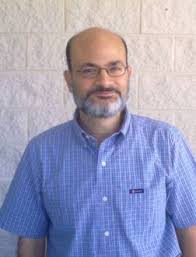
Prof. Ts. Dr. Ali Selamat
Prof. Ali Selamat is currently a Dean of Malaysia Japan International Institute of Technology (MJIIT) which is an education institute that is established by Ministry of Higher Education Malaysia with the aim of enhancing Japanese Oriented Engineering Education in Malaysia and Asian with the support from Government of Japan through Japanese International Cooperation agency (JICA) and Universiti Teknologi Malaysia together with 29 Japanese University Consortium (JUC). Prior to that, he was a Chief Information Officer (CIO) and a Director of Center of Communication and Information Technology, UTM. He is currently elected as a Chair of IEEE Computer Society, Malaysia Section under the Institute of Electrical and Electronics Engineers (IEEE), USA and also a member of Malaysia Engineering Deans Council. He was previously assuming the position of research Dean on Knowledge Economy Research Alliance, UTM.
Prof. Ali Selamat has received a B.Sc. (Hons.) in IT from Teesside University, U.K. and M.Sc. in Distributed Multimedia Interactive Systems from Lancaster University, U.K. in 1997 and 1998, respectively. He has received a Dr. Eng. degree from Osaka Prefecture University, Japan in 2003. He was a principal consultant of Big Data Analytics, Ministry of Higher Education, Malaysia 2017 and a keynote speaker in many international conferences. He was a visiting professor at Kuwait University, and few other universities in Japan, Kingdom of Saudi Arabia, and Indonesia. Currently he is a visiting professor at Hradec-Kralove University, Czech Republic and Currently, he is serving as the Editorial Boards of International Journal of Knowledge Based Systems Elsevier, Netherlands, International Journal of Information and Database Systems (IJIIDS) under Inderscience Publications, Switzerland and Vietnam Journal of Computer Science under Springer Publications. He is a Program Chair of International Conference on Software Engineering Tools, Methodologies (SOMET), September 2020 to be held in Kitakyushu, Japan and also Chairing IEA/AIE 2021: The 34th International Conference on Industrial, Engineering and Other Applications of Applied Intelligent Systems in Kuala Lumpur, Malaysia.
His research interests include data analytics, digital transformations, knowledge management in higher educations, key performance indicators, cloud-based software engineering, software agents, information retrievals, pattern recognitions, genetic algorithms, neural networks and soft-computing.

Prof. David Brown
Professor David Brown is currently Professor in Interactive Systems for Social Inclusion in School of Science & Technology in Nothingham Trend University. He is a member of the Interactive Systems Research Group (ISRG). His research interests include : The design, development and evaluation of Virtual Reality and Multimedia Learning Environments to promote social inclusion (Adapt, DLTR, NLCB, NLSC, NCH, NLEA), guidelines for accessible web design for people with a disability (Mental Health Foundation, Leonardo da Vinci), design guidelines for higher education eLearning systems (NTU SDG), design of virtual tutoring agents for people with cognitive impairments (ESRC), Research in best practice eLearning systems to promote social inclusion (NTU SDG), User sensitive methodologies for the development of assistive and adaptive devices for use by people with physical and cognitive impairments (EPSRC, Equal), Pedagogy and virtual environments (ESRC), game-based learning to promote the engagement of young disaffected students in e-learning (EU Grundtvig, ESF West Midlands, Derby Libraries, NLSC)
Current and recent research is being conducted with the collaboration, funding and / or support of the following: The Division of Rehabilitation and Ageing, University of Nottingham, The Birmingham Institute for the Deaf (BID), Greenhat Interactive: Social Enterprise that develops and trains in eLearning programmes and materials for accessible, anytime, anywhere learning for socially excluded groups and disadvantaged communities, Information Society Open to All (E-Isotis), Greece, European Pole of Knowledge (Europole), Italy, Integra: a non-government organisation, part of the larger Integra - network of partnering agencies, involved in social and economic development of the countries in Central and Eastern Europe, Bulgaria, Zgura-M: one of the founders of Marie Curie Association, implementing both national and international projects which aim at contributing to the social, educational and labour integration of disabled people, Bulgaria, Centrul de Pregatire Profesionala în Cultura: Centre for Profesional Training in Culture, Romania and Leonardo: part of the European Commission's Lifelong Learning Programme.

Prof. Wadee Alhalabi
Professor of Artificial Intelligence, Computer Science Department, Faculty of Computing and Information Technology Member of the university promotion committee Former Member of the university scientific council Lead of the Virtual Reality Research Group Director of the House of Expertise of Virtual Reality and Artificial Intelligence.
Education: 2008 University of Miami, Fl, USA, PhD in Electrical and computer engineering | 2004 University of Miami, Fl, USA MSECE in Electrical and computer engineering | 1996 Umm Alqura university BEng. in Electrical and Computer Engineering
Research Interest: Artificial Intelligence and Machine Learning , Image processing and Virtual reality

Tutorials
Coming soon
Technical Program Committee
Abbas Dandache, Lorraine University, France
Abdallah AlSaeedi, Taibah University, KSA
Abdelaziz Ettaoufik, Hassan II University – Casablanca Morocco
Abdellah Kassem, UND, Lebanon
Abdelltif EL Byed, Hassan II University – Casablanca Morocco
Abderhmane Jarrou, Lorraine University, France
Abderrahim Maizat , Hassan II University – Casablanca Morocco
Abderrahim Tragha, Hassan II University – Casablanca Morocco
Abdullah Ghareb, University of Saba Region, Yemen
Abdulrahman Alsewari, Universiti Malaysia Pahang, Malaysia
Abdulrazak Alhababi, UNIMAS, Malaysia
Adil Sayouti, Ecole Royale Navale, Morocco
Ahmed Lakhssassi, University of Quebec in Outaouais, Canada
Ahmed Madian, NISC, Egypt
Ali Balaid, Universiti Teknologi Malaysia, Malaysia
Ali Jwaid, Nottingham Trent University, UK
Ashraf Osman, Alzaiem Alazhari University, Sudan
Asmaa Benghabrit, ENIM, Rabat - Morocco
Assia Bakali , Ecole Royale Navale, Morocco
Ayoub Fentis, EMSI, Morocco
Badri Tijane, EMSI, Morocco
Beverley Cook Essa Hezzam, Nottingham Trent University, UK
Brahim Lejdel, University of El-Oued, Algeria
Brahim Raouyane, Hassan II University – Casablanca Morocco
El Mehdi Bendriss, Vinci, Morocco
El Moukhtar Zemmouri, Moulay Ismail University, Meknes - Morocco
Emmanuel Simeu, Grenoble-Alpes University, France
Essa Hezzam, Taibah University, Kingdom of Saudi Arabia
Fabrice Monteiro, Lorraine University, France
Faisal Saeed, Taibah University, Kingdom of Saudi Arabia
Fathey Mohammed, Universiti Utara Malaysia (UUM), Malaysia
Firdaous Marzouk, EMSI, Morocco
Funminiyi Olajide, Nottingham Trent University, UK
Georgina Cosma, Nottingham Trent University, UK
Hassna Bensag, EMSI, Morocco
Hicham Behja, Hassan II University – Casablanca Morocco
Imane Daoudi, Hassan II University – Casablanca Morocco
Kamal Eddine El Khadri, Abdelmalek Essadi University – Tangier Morocco
Khadija Bousmar, EMSI, Morocco
Khalid ELFAHSSI, Sidi Mohamed Benabdellah University – Fez Morocco
Khalid Moussaid, Hassan II University – Casablanca Morocco
Lamiae Demraoui, EMSI, Morocco
Leila Fejtah, Hassan II University – Casablanca - Morocco
Maxim Shcherbakov, Volgograd State Technical University, Russia
Meriem Mandar, Hassan I University , Settat - Morocco
Meryem Khouil, EMSI, Morocco
Mohamed Atibi, EMSI, Morocco
Mohammed Al Ashwal, Volgograd State Technical University, Russia
Mohammed Alshargabi, Najran University, KSA
Mohammed Alsarem, Taibah University, Kingdom of Saudi Arabia
Mohamemd El Youssfi, Hassan II University – Casablanca Morocco
Mohammed H. Jabreel, Universitat Rovira i Virgili, Spain
Mohammed Hadwan, Qasim University, Kingdom of Saudi Arabia
Mohammed Karim Guennoun, EHTP - Morocco
Mohammed Kolib, Taibah University, KSA
Mohammed Lahbi, Hassan II University – Casablanca Morocco
Mohammed Laraqui, Ibnou Zohr University – Agadir Morocco
Mohammed Rachdi, Hassan II University – Casablanca Morocco
Mohammed Réda Chbihi Louhdi, Hassan II University – Casablanca Morocco
Mohammed Rida, Hassan II university – Casablanca Morocco
Mohammed Talea, Hassan II University – Casablanca Morocco
Mostafa Bellafkih, INPT, Rabat - Morocco
Ramdani Mohamed, FST, Mohammedia - Morocco
Mostafa Belmakki, INPT, Rabat - Morocco
Abdelhamid Belmakki, INPT, Rabat - Morocco
Mouhamad Chehaitly, Lorraine University, France
Mounia Abik, ENSIAS, Rabat - Morocco
Nabil Madrane, Hassan II University – Casablanca Morocco
Nadhmi Gazem, Taibah University, Kingdom of Saudi Arabia
Nadia Saber, EMSI, Morocco
Najib el kamoun, Chouaib doukali University - El Jadida Morocco
Noorminshah Iahad, Universiti Teknologi Malaysia, Malaysia
Noura Aknin, Abdelmalek Essadi University – Tangier Morocco
Noureddine Abghour, Hassan II University – Casablanca Morocco
Ouail Ouchetto, Hassan II University - Casablanca, Morocco
Rabab Chakhmoune, Brams, Morocco
Rachid Dehbi, Hassan II University – Casablanca Morocco
Rachid Ouled Lhaj Thami, ENSIAS, Rabat - Morocco
Rachid Saadane, EHTP, Casablanca - Morocco
Rashiq Rafiq, Taibah University, KSA
Redouane Kanazy, EMSI, Morocco
Rim Koulali, Hassan II University – Casablanca Morocco
Said Jai Andaloussi, Hassan II university – Casablanca Morocco
Said Ouatik El Alaoui, Ibn Tofeil University – Kenitra Morocco
Sanaa Elfilali, Hassan II university, Casablanca Morocco
Slim Lammoun, ENSIT, Tunis university
Sofien Dellagi, Lorraine University, France
Soukaine ELhassnaoui, EMSI, Morocco
Stephen Clark, Nottingham Trent University, UK
Taha Hussein, Universiti Malaysia Pahang, Malaysia
Tarik Nahal, Hassan II University – Casablanca Morocco
Tawfik Al-Hadhrami, Nottingham Trent University, UK
Wadii Boulila, University of Manouba, Tunisia
Youssef Baddi, Chouaib doukali University - El Jadida Morocco
Yassine Khazri Hassan II University of Casablanca, Morocco
Zakaria Sabiri, ENSEA, France
Chiba Zouhair Hassan II University, Casablanca, Morocco
Hilal Imane, ESI, Rabat, Morocco
Elmoufidi Abdelal FST, Beni Mellal, Morocco
Bouragba Khalid EST,Casablanca, Morocco
El Houssine Ziyati EST,Casablanca, Morocco
ETTAOUFIK Abdelaziz FS Ben M’sik, Casablanca,Morocco
Sabir Essaid ENSEM, Casablanca,Morocco
Mahmoudi Abdelhak ENS, Rabat, Morocco
Laassiri Jalal FS, Kenitra, Morocco
Tariq Saeed Mian Taibah Uviserity, KSA
Committees
Honorary Committee
International Advisory Board
Prof. Rose Alinda Alias, Universiti Teknologi, Malaysia
Prof. Ahmad Lotfi, Nottingham Trent University, UK
Prof. Funminiyi Olajide, Nottingham Trent University, UK
Prof. Mohammed Alshargabi, Najran University, Kingdom of Saudi Arabia
Prof. Maxim Shcherbakov, Volgograd State Technical University, Russia
Prof. Mohammed Al Ashwal, Volgograd State Technical University, Russia
Prof. Abdullah Ghareb, University of Saba Region, Yemen
Conference General Co-Chair
Prof. Faisal Saeed, Taibah University, Kingdom of Saudi Arabia
Program Committee Co-Chairs
Prof. Raouyane Brahim, Hassan II University – Casablanca Morocco
Prof. Mohammed Al-Sarem, Taibah University, Kingdom of Saudi Arabia
Publicity Committee
Prof. Mandar Meriem, National School of Applied Science of Berrechid – Morocco
Publication Committee
Logistic Committee
Prof. Dehbi Rachid, Hassan II University – Casablanca Morocco
Dr. Yassine Khazri, Hassan II University - Casablanca, Morocco
Sponsorship Committee
Prof. Jai Andaloussi Said, Hassan II university – Casablanca Morocco
Dr. Rachdi Mohammed, Hassan II university – Casablanca Morocco
Prof. Koulali RIM, Hassan II university – Casablanca Morocco
IT Committee
Prof. Chbihi Louhdi Mohammed Réda, Hassan II University – Casablanca Morocco
Secretary Committee
Prof. Belmakki Mostapha, INPT – Rabat - Morocco
Finance Committee
Prof. Mohammed Al-Sarem, Taibah University, Kingdom of Saudi Arabia
Registration Committee
Prof. Sameer Hassan, Universiti Teknologi, Malaysia
Important Dates
| Paper Submission Deadline | Firm Deadline 25 March 2021 |
|---|---|
| Author Notification | |
| Final Version of the Papers | |
| Registration Deadline | 1 May 2021 |
| Conference Dates | 24-25 May 2021 |
Registration
| Students | 120 € |
| Staff | 170 € |
* for moroccan attendees the change rate is fixed to 10 dirhams for 1 euro
Registration Guidlines
- Download these files:
- Guidelines Registration : Guidelines Registration
- Table of Corrections Template : Table of Corrections Template
- Camera Ready : Paper Template
- Copyright Form : Copyright Form
Payment method:
You can pay your registration fee through a bank transfer as per the information is given below :| BANK NAME | AL BARID BANK |
|---|---|
| Bank account owner | Association MAROCAINE DES SYSTEMES INTELLIGENTS |
| Bank account owner adress | FST BD MOHAMMED 6 BP 146 BD MOHAMMED 6 LOT YASSMMINA MOHAMMEDIA |
| Agency address | Al Barid BANK, RABAT MADINAT AL IRFANE, Rabat Morocco |
| Bank account number | 0/00007500793 |
| RIB | 350 810 0000000007500793 48 |
| IBAN (24 Digits) | 350 810 0000000007500793 48 |
| Code SWIFT/BIC | ABBMMAMC |
Submission
The main submission guidelines are :
- Prepare your paper based on Springer Word format.
- Submit your paper online using ICACIN'21 Easychair account.
- ICACIN 2021 submissions are required to be double blind (anonymous submissions). In order for the paper to be reviewed, please remove the authors names and affiliations from the paper and upload the pdf file to your Easychair account.
- The number of pages should not exceed 10 pages.
Program
Click here to download the program (pdf).
Abstract Book
Click here to download the Abstract Book (pdf).


